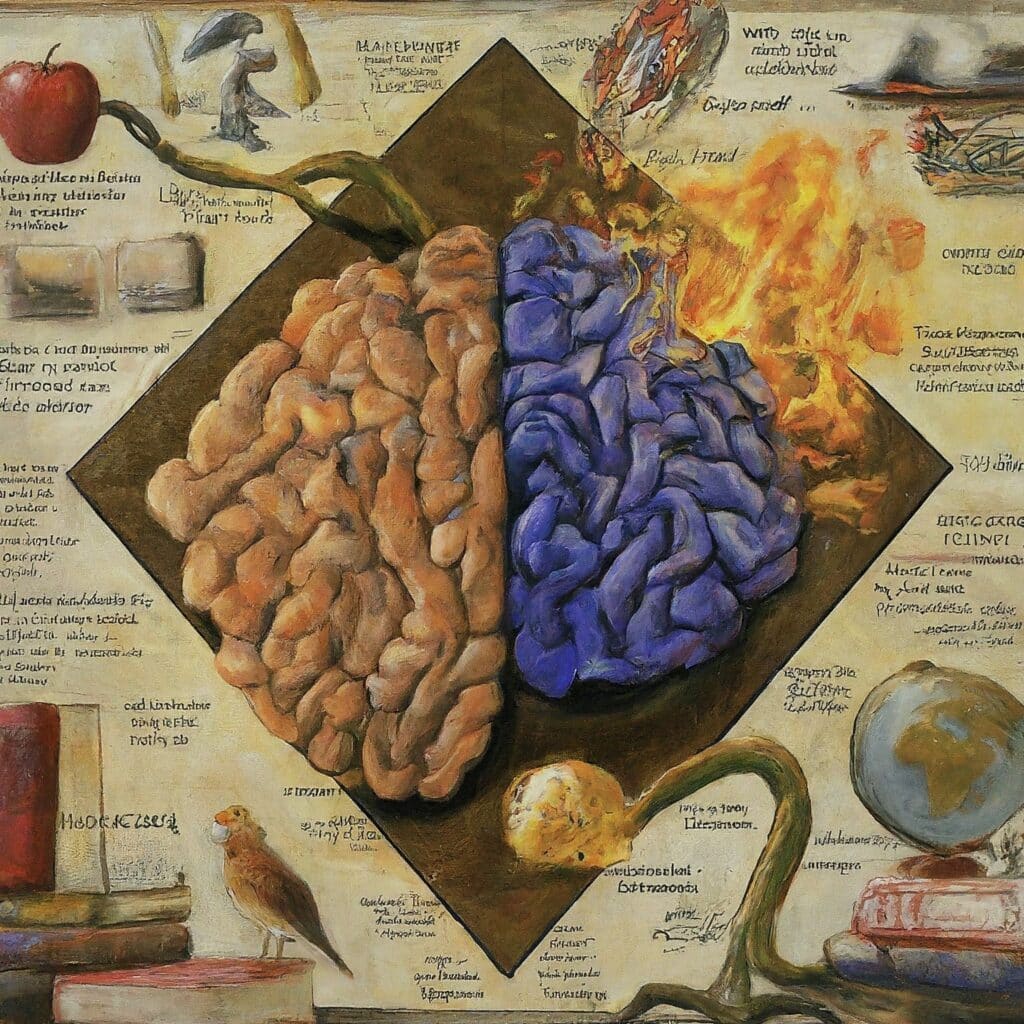Hardest AP Classes
Most Challenging Advanced Placement Courses Based on Passing Rates for 2021-2022
Determining the most challenging Advanced Placement (AP) classes and exams is a task that hinges on various factors. Pass rates shed light on the complexities of AP subjects, providing insights into which classes may pose the greatest challenge to students.
Teacher guidance and methodologies also significantly influence student performance, as they help bridge the gap between course content and test taker abilities.
Individual academic strengths are crucial when assessing the difficulty of an AP class or test, as what may be tough for some could be more manageable for others. For example, exam results from recent years reveal that Physics 1 stands out as one of the more formidable subjects, with a notably low percentage of examinees achieving the highest possible scores .
However, difficulty is subjective and varies with each student's aptitude in different academic areas.
As students plan their AP coursework or prep for upcoming exams, it is useful to consider these dynamics to gauge which AP challenges might await them.
Key Takeaways
- Exam pass rates serve as a valuable indicator of AP class and test difficulty.
- Teacher influence and individual academic strengths are significant aspects to consider.
- AP Physics 1 has proven to be exceptionally challenging based on exam performance data.
Most Challenging Advanced Placement Courses Based on Passing Rates 2022
When assessing the difficulty level of Advanced Placement courses, both the percentage who pass the exam by scoring a 3 or higher and the frequency of students who achieve the perfect score of 5 are critical metrics.
The courses listed below are identified as the most rigorous based on their lower pass and perfect score rates:
AP Class/Exam Pass Rates
| AP Class/Exam | Pass Rate (3+) | Perfect Score (5) |
|---|---|---|
| Physics 1 | 43.3% | 7.9% |
| United States History | 48.2% | 10.8% |
| United States Government and Politics | 48.6% | 12% |
| Macroeconomics | 51.8% | 16.4% |
| Human Geography | 53.2% | 14.9% |
| Environmental Science | 53.8% | 8.9% |
| Chemistry | 54% | 12.5% |
| Calculus AB | 55.7% | 20.4% |
| Psychology | 58.3% | 17% |
| European History | 58.9% | 13.5% |
It's important for students to also weigh personal academic strengths and instructor effectiveness, as these factors greatly contribute to the individual experience of difficulty in any given AP course.
Diverse Online Academic Opportunities
Physics I
In this rigorous course, learners tackle fundamental principles such as Newton's laws of motion and the basics of electricity and magnetism.
Laboratory experiments make up a significant portion of the curriculum, providing practical experience in the scientific method.
U.S. History
This comprehensive study spans significant events and periods shaping the United States from pre-colonial times to modern society.
Students engage deeply with historical events, political forces, and their consequences through varied assessment methods.
U.S. Government and Politics
Students are immersed in the complexities of the American political structure, examining governance, policy creation, and civil liberties.
They evaluate founding documents and Supreme Court rulings to craft informed arguments.
Macroeconomics
Macro-level economic theories and their real-world applications form the core of this subject.
Learners scrutinize economic behaviors and outcomes, equipped with calculators starting in 2023 to aid their analysis in examinations.
Human Geography
This subject delves into the study of population patterns, land usage, and their effects on the planet.
Students interpret diverse geospatial data and graphical information, understanding humans' impact on the global landscape.
Environmental Science
An interdisciplinary field, Environmental Science combines elements from natural sciences to examine ecological issues and propose data-driven solutions.
Field studies complement in-class learning for a rounded perspective on sustainability.
Chemistry
With a heavy focus on chemical concepts and algebra, this challenging course requires significant memorization and problem-solving skills.
Experiments play a key role in reinforcing theoretical knowledge.
Calculus AB
This advanced mathematics course addresses complex calculus concepts.
Beyond lectures, the evaluation process challenges students' application of learned methods to practical scenarios without the aid of calculators for a majority of tasks.
Psychology
This exploration into human behavior and mental functioning introduces psychological principles and research methods.
The well-rounded curriculum assesses students through a combination of theoretical knowledge and application.
European History
Covering significant cultural, economic, and political milestones in Europe, this thorough study requires critical thinking and evidential argumentation.
Students grapple with time management in crafting well-structured historical analyses.
Challenging Advanced Placement Courses
While the difficulty of Advanced Placement (AP) courses can vary, AP Physics 1 stands out for its notably low pass rates. In May 2022, a pass was achieved by just 43.3% of students, and a mere 7.9% accomplished the highest score possible.
Other challenging AP courses include:
- AP U.S. History
- AP Macroeconomics
- AP Chemistry
- AP Calculus AB
Foreign language AP courses bring unique challenges due to their comprehensive testing of auditory, written, and spoken skills.
Students' individual strengths and the effectiveness of the course teacher play significant roles in determining the overall challenge of any AP class. Seeking advice from school counselors, instructors, and former students is recommended for those considering enrolling in an AP course.
Determinants of AP Course Difficulty
Indicators of AP Class Challenge
Identifying AP course difficulty often extends beyond just examining the test's pass rate.
For example, while AP Japanese Language boasted a pass rate of 75.5% in May 2022, this doesn't capture the whole picture because only a small number of students elected to take this test. In contrast, AP Environmental Science had a much lower pass rate, but this was amongst a substantially larger group of test-takers.
Pass Rates and Student Numbers
A high pass rate could signify that a course attracts students who are particularly interested in the subject matter, while a low pass rate might indicate that the course has enrollment from many students who aren't fully prepared.
Three Primary Indicators of AP Course Rigor
Personal Academic Strengths: Students often find courses less challenging if their strengths align with the subject. For example, a strong calculus student may find AP Calculus manageable.
Breadth of Course Material: The extent of content covered in the course can also be a predictor. More comprehensive material tends to imply a more difficult course.
Instructor Effectiveness: The reputation and teaching ability of the instructor can significantly affect student readiness for the exam. A well-regarded teacher can often mean better preparation for the AP test.
Determining the Hardest AP Classes: An Analysis of 2021 Data
When exploring the world of Advanced Placement (AP) classes for 2021, students often grapple with choosing courses that align with their academic strengths and future aspirations.
For those eager to challenge themselves, or for those seeking to avoid overwhelming obstacles, understanding which AP classes are the most challenging is crucial. Here, we delve into what makes an AP class difficult and list those that consistently rank as the hardest, based on comprehensive data and student experiences.
A Closer Look at Exams with Low Passing Rates and High 5 Rates
In 2021, certain AP classes stand out for their low passing rates and rigorous content, indicating a significant challenge:
- AP Physics 1: Known for its demanding content, AP Physics 1 had a passing rate of only 43%, with a mere 8% of students achieving the highest score of 5. The subject requires a deep understanding of complex physical concepts, which many students find challenging without a strong foundation in physics.
- AP United States History: With a passing rate of 48%, this course demands a detailed knowledge of America's history, requiring students to remember specific dates, events, and figures crucial for excelling in the exam.
- AP Government and Politics - United States: This course, which had a passing rate of 49%, involves a thorough understanding of the U.S. government structure, policy-making processes, and political theories.
Examining the '5 Rate' for Insights
While passing rates give us a preliminary view, looking at the percentage of students who score a 5—the highest score possible—can provide additional insights into which exams are the hardest:
- AP Chemistry: Despite its foundational role in the sciences, only 13% of test-takers achieved a score of 5, reflecting its status as one of the more conceptually challenging AP exams, demanding both strong problem-solving skills and extensive memorization.
- AP English Literature and Composition: With a 5 rate of only 17%, this course requires a nuanced understanding of complex literary works and the ability to perform detailed textual analysis and criticism.
Factors Beyond National Data
It's crucial to recognize that the national statistics might not accurately represent the difficulty of an AP course at every school. The way an AP course is taught can vary significantly between different educational institutions, which can affect both the course's difficulty and the students' success rates. Some schools might have a more rigorous approach, with experienced teachers and more structured support, leading to better student performance and higher pass rates.
Exploring Common Inquiries on AP Course Rigor
How Challenging is AP Psychology?
AP Psychology introduces foundational concepts in the field and requires students to grasp new terminology and research methods.
With data indicating 58.3% of examinees pass and 17% achieve the highest mark, the course demands significant study and understanding of psychology's various facets.
Difficulty of AP Statistics
Nearly 60% of students obtain a passing score on the AP Statistics exam, but the material demands a thorough grasp of statistical methods, data analysis, and probability.
A score of 15% for top marks reveals the necessity for mastery of complex college-level statistics concepts.
Significance of Scoring a 4 on AP Exams
On the 1-5 AP scoring scale, a 4 signifies strong subject mastery and often translates to college credit or advanced standing. This reflects a student's high level of proficiency in the subject matter.
Recognition of a Score of 3 in College Admissions
A score of 3 is considered passing and indicates basic qualification in the subject. However, the awarding of college credit for this score varies by institution, with some requiring higher scores for credit or placement.
Frequently Asked Questions
Advanced Placement Classes with Notably Low Pass Rates
Advanced Placement (AP) classes that present a higher difficulty typically show lower pass rates. A pass rate refers to the percentage of students scoring a 3 or above on the AP exam.
For example, AP Physics 1 often records a lower pass rate, indicating the complexities involved in understanding and applying the principles covered in this course.
Exams Yielding Few High Scores
Certain AP examinations have a notable trend of fewer students achieving the highest score possible, a 5. The distribution of such scores can highlight the challenging nature of the exams, such as in AP Physics 1 or AP Chemistry, which both have low percentages of students scoring a 5.
Comparative Difficulty Perceptions Among AP Subjects
Students may perceive the difficulty of AP subjects differently based on various factors, including the subject matter, the amount of content, and individual academic strengths.
For instance, subjects like AP Calculus or AP Biology might be viewed as more challenging for those not inclined towards math and science.
Factors Leading to AP Courses' Challenging Reputation
The reputation of an AP course's challenge level arises from several factors, such as the depth and breadth of the material covered, the rigor required of college-level coursework, and the comprehensive nature of the examination itself.
Views on Multiple AP Courses in College Admissions
College admissions officers often regard the completion of multiple AP courses positively. They see it as a demonstration of a student's willingness to engage with rigorous academic material and their preparedness for the demands of college study.
Strategies for Success in Strenuous AP Classes
Students employ various strategies to excel in demanding AP classes . These might include regular study schedules .
Other strategies are forming study groups, seeking help from teachers, utilizing AP review books, and practicing with past exam papers.
Conclusion: The Hardest AP Classes
Based on an in-depth review of both passing and 5 rates, along with curriculum analysis, the AP courses that consistently challenge students the most include AP Physics 1, AP United States History, AP Chemistry, and AP English Literature and Composition. These courses not only cover extensive and complex material but also demand a high level of critical thinking and problem-solving skills.
As students consider enrolling in these challenging AP classes, they should seek advice from teachers, counselors, and peers, and consider their personal academic strengths and schedules. By understanding the rigorous nature of these courses, students can better prepare themselves for the academic challenges ahead.






